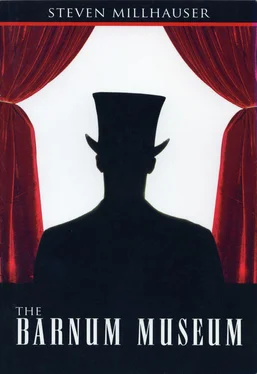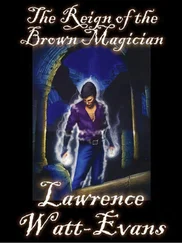Sprechen Sie Englisch?“How’s Dad been?” Jacob asks out of the blue, looking up abruptly from his cards. David is startled and exhilarated: things are going to be all right after all, the family is sticking together, everything’s bound to be all right. “Oh, he’s been all right,” David answers. He knows that Mrs. Peacock did it, with either the Revolver or the Candlestick; his father is slumped in an armchair, a revolver at his feet, a red hole in his temple. “Actually there was one, I don’t know, episode.” Marian turns her head sharply. “What episode, Davey?” “Episode,” Jacob says, frowning thoughtfully and pulling at his chin. “Episode, episode.” His face assumes a hopeful expression. “ Sprechen Sie Englisch? ” “Well,” David says, “you know how he likes to park as close to his classroom as possible? So he doesn’t have to carry his briefcase too far? Well, last month someone took his space, so Dad had to walk across the whole parking lot with a load of books. He told Mom he was so short of breath he had to sit down. Now he’s bought an extra copy of every book for the course and he keeps one copy in his office and one at home.” “You never told me that,” Marian says. “Davey, you promised to tell me, no matter what.” “Mom made me promise not to tell. You know how Dad is.” “And he won’t see Hershatter?” Jacob asks. “No way. He tells Mom, but she’s not allowed to tell me. But she does, sometimes. He gets furious if she tells him to see Hershatter.” “Am I living in a bad novel?” Jacob says, flinging up an arm. “What is this crap? Can’t Mom get him to see Hershatter?” “You try getting him to see Hershatter. Mom says he gets too angry. She doesn’t want to upset him.” “She doesn’t want to upset him? He can’t walk across a parking lot and nobody’s allowed to know?” “He’s been better lately,” David says, “really.” Jacob stares at David; for a moment his arm is suspended in the air. He lowers his elbow to the table and leans his forehead into the heel of his hand. His long fingers are thrust into his hair and his eyes are heavy-lidded. “Dad is sick,” he says slowly. “He needs to see a doctor. If he keeps on like this, he’s going to die.” “Jake,” Marian says, placing a hand on his forearm. “It’s David’s birthday.”
Professor Plum makes a discovery.As he advances once again along the SECRET PASSAGE toward the KITCHEN, or is it the CONSERVATORY, Professor Plum notices, around a darkening bend in the path, a narrow fissure in the rough stone wall. He has noticed it before. In the half-darkness lit only by the distant flame of a kerosene lantern, he stops for a moment to give it his close attention. The fissure rises from the floor to the height of his forehead; it is wide enough to admit a man sideways. The Professor is in no great hurry to arrive at the CONSERVATORY, or is it the KITCHEN — indeed, his supreme pleasure is to traverse the passages — and on a sudden impulse he steps sideways from the path into the fissure, bending his head awkwardly and protecting his spectacles with a hand. Behind the entrance the fissure widens and admits the Professor to another dim-lit passage. It is much like the one he has left but covered with a strip of carpet and lined with shelves containing a variety of amusing objects: small colorful glass jars, faded magic-lantern slides, pipe racks filled with pipes of many shapes, lacquered wooden boxes. The Professor advances by slow steps, looking back at the receding fissure, which closes into darkness. He plans to follow the new passage only a short distance, before turning back and continuing on his way.
Cards (2).The backs of the cards show a magnifying glass in whose lens is pictured, in blue-black and white, the posts of a gate, a curving walk, and a gabled mansion with four chimneys. Each chimney is crowned by three chimney pots. A large blue-black tree with bushy blue-black foliage, situated between the gate and the mansion, spreads a curving branch above part of the roof. Each gatepost is surmounted by a finial composed of a cone with concave sides topped by a sphere. Each sphere, in the foreground, is large enough to contain the door of the mansion, in the background. On the handle of the magnifying glass are long parallel blue-black lines, suggestive of palpable ridges like those on the circumference of a coin.
Love and death.Jacob crushes down a reply and, with Marian’s hand still on his arm, remembers suddenly the new baby home from the hospital: he and Marian standing on both sides of the cradle looking down at David. He thought: he looks like me, in the album. The unexpected resemblance gave him the sense that he was the father, that he was peculiarly responsible for this child: his child. He sees his father’s grave face, hears the solemn words: Jacob, Marian, I want you to love your brother always, do you understand, you’re all he’ll have when your mother and I are no longer here. Jacob tried to understand, but the words frightened him; he wondered why they were no longer going to be there.
A deeper significance.Miss Scarlet, fixed by the Colonel’s mediocre imagination in an attitude of banal surrender, senses that matters are not proceeding quite as they should be. The smooth revolting precision of the Colonel’s advance upon her has suffered interruption, indeed breakdown. At first Miss Scarlet imagines some merely masculine trouble, but gradually she divines a deeper significance. The Colonel, in order to enjoy himself, requires a small pleasure she has failed to provide. Her stylized offer of herself, which perfectly expresses his vulgar and trivializing fantasy of conquest, nevertheless irks him because it deprives him of a pleasure still more banal: the overcoming of an obstacle. Miss Scarlet does not cease to marvel at the fascinating depths of the Colonel’s inexhaustible banality. It is in order to provoke in her a show of titillating resistance that the Colonel lingers on the threshold of seduction, and it is in order to prolong his hesitation, and postpone the degradation of his touch, that Miss Scarlet remains motionless on the window seat in an attitude of erotic invitation.
The two Mr. Greens.Slowly, very slowly, Mr. Green advances toward the BALLROOM door. He has not made up his mind to enter, but he has made up his mind to advance slowly in the direction of the door, in the hope that forward motion, with its apparent decisiveness, will demonstrate to his doubting mind that decision is possible. But with every step forward there rises, in Mr. Green’s mind, a new reason for retreat. It is as if the fact of forward physical motion has released his mind from the need to find reasons to advance, thereby permitting it to exercise its full powers in producing evidence for retreat. Mr. Green is therefore moving in two direction: forward, physically; backward, mentally. A diagram would show twin figures back to back, each with its foot raised, each with its head turned over its shoulder.
Is that all?David, frightened by Jacob’s words, glances over his cards at the board and sees a square of cardboard with yellow and gray plane figures on it. The flatness of the board startles him: it is a depthless world, devoid of shadow. There are no rooms, no doors, no secret passages, only the glare of the overhead light on the black lines, the yellow spaces. For a moment he wants to shout: is that all? is that all?
A new life.Marian removes her hand from Jacob’s arm but continues to think about her father. He is sicker than she knew; the signs are there, she has been deceiving herself. The thought of her father’s death is so disturbing that she feels a ripple of panic pass across her stomach; she looks up guiltily, as if she has been detected in a crime. Her father’s absence from her life, a life that hasn’t even begun yet, is not possible. She will speak to her mother in the morning. She will call more often. She will begin her life. She will change her life. She will meet someone. She will do something. Marian thinks: stop. You are growing morbid. Stop. You are being selfish. It is David’s birthday, a day of celebration.
Читать дальше












